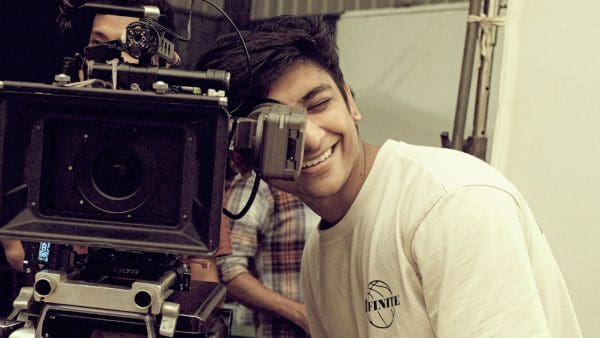We’ve all heard of silences that speak as loud as words. Now Rui Zhe Goh has put that cliche to the test.
Goh, a doctoral student studying philosophy and psychological and brain sciences, decided to investigate whether silence affects our auditory system the same way that noise does. In earlier experiments, researchers found that people tend to perceive a single extended sound as lasting longer than a duo of short sounds, even if the sequences are equivalent in length. The same illusion affects visual objects—a rectangle will often be perceived as longer than two squares side by side, despite their lengths being equal.
But those studies were about the presence of something, either a visual object or auditory event. Could the same effect be seen in the absence of something?
“We’re trying to ask whether you can hear silence; can silence be an auditory object?” Goh says. “Does this illusion that happens with auditory objects also happen with silence?”
Goh, working with Chaz Firestone, assistant professor in the Department of Psychological and Brain Sciences, and Ian Phillips, Bloomberg Distinguished Professor of Philosophy and Psychological and Brain Sciences, designed an experiment that mimicked the earlier sound experiment. Participants listened to a recording of bustling, murmuring sounds similar to that of a crowded restaurant, broken by a pair of short silences and one long silence. Then they were asked to characterize the lengths of the silences.
Perception of Silence
The result was identical to the research on sounds. Most people perceived the single, unbroken silence as longer than the duo of silences. Not only that, but the proportion of responses identifying the single silence as longer was identical to the proportion of responses that had found the single sound was longer in the original auditory experiment.
Even Goh was affected. “I knew exactly how long each sequence was because I programmed it—but when I heard it, the single silence sounded longer, and that was fascinating,” he says. “It shows our auditory system doesn’t just divide up sounds, it can divide up empty periods of time to produce auditory events of silence.”
Goh is following up his research with experiments on visual absences. “When you’re in a magic show, and something disappears in front of you, there’s a moment where you experience the absence of the thing,” he says. He has presented the same pattern of sequences using objects disappearing on a screen, with similar results.
Event Segmentation
The process behind this persistent illusion may be event segmentation, Goh says. Our auditory systems, for example, receive a continuous flow of acoustic input, but must break the flow of soundwaves into segments that correspond to the discrete sounds we hear.
Music and theater, even speeches, depend on silences for drama and impact. “Events are important for us, but not just events where there is a stimulus in the world. Events where an auditory stimulus stops are also important. We think that our project can help explain why these experiences have the kind of impact they have on the audience.”
While everyone is familiar with silence, few spend much time thinking about it. “I came into grad school wanting to study our experience of time,” Goh says. “Silence is the experience of time passing, empty time passing. It could be seen as the purest experience of time.”




